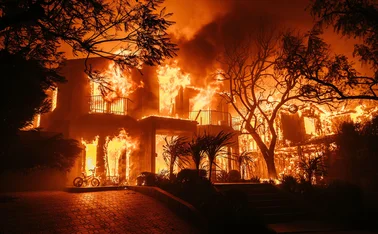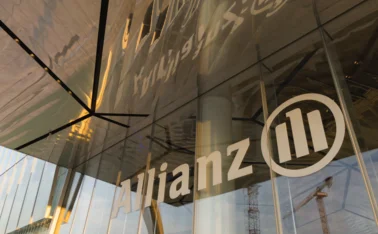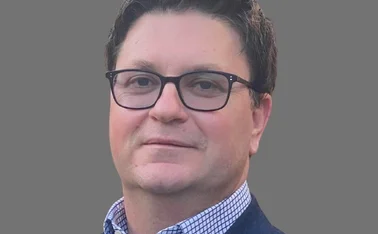
A letter from America

Despite being virtually a risk-free procedure, few UK insurers look to pursue recovery of money for claims on which their clients are not responsible. Simon Jones and Natalie Cooksammy explain that although this practice is widespread in the US, an early precedent was set by an 18th century London insurance firm
The term 'subrogation industry' is routinely heard in insurance circles in the US but is such an industry emerging in London? A war between the British and the Americans - and a related riot in London - led to one of the earliest-ever reported subrogation cases. When they were fighting the Americans in the late 1700s, the British army - who expected to be victorious in what became the American War of Independence - was very different to the disciplined army of George Washington.
The British soldiers were unhappy because they were being outfought, as the following extract from a soldier's letter home from Charleston, South Carolina, in the spring of 1781 shows: "I wish our ministry could send us a Hercules to conquer these obstinate Americans, whose aversion to the cause of Britain grows stronger every day. If you go into company with any of them occasionally, they are barely civil. They are in general sullen, silent and thoughtful. The King's health they dare not refuse but they drink it in such a manner as if they expected it would choke them; I am heartily tired of this country, and wish myself at home."
The British army uniform was suitable for European warfare but in America it made the troops extremely conspicuous. Their weapons were becoming outdated; they were inaccurate and had only a 50-yard range. They lacked knowledge of the terrain, their maps were inadequate and the officers had little concept of the distances involved in such a vast continent.
Inevitably, word got back to Britain. The government had encountered significant difficulty recruiting men into the army - despite the Catholic Relief Act 1778 that allowed Roman Catholics in Britain to own property, inherit land, and, importantly, join the army. However, the Act was hugely unpopular among non-Catholics and this is what led to early subrogation case law.
The Act led to violent anti-Catholic riots in London in June and July 1780. Lord George Gordon marched on parliament with a crowd of 50,000 supporters to present a petition requesting the repeal of the Act and a return to Catholic repression. Edinburgh and Glasgow had already seen similar riots: chapels, Catholic houses, prisons and public buildings were targeted - Catholics were even attacked in the street. There were running battles between the demonstrators and the authorities.
In the 10 days it took the government and the London authorities to restore order in the capital 12,000 troops were deployed, more than 700 killed and 25 rioters subsequently hanged. Lord Gordon was tried for high treason but acquitted and the Lord Mayor of London was fined £1000 for negligence of his duties - all because of an Act that was partly introduced to swell the number of British troops in America.
Property destruction
It was estimated more than £180,000 worth of property was destroyed during the 'Gordon Riots', a huge amount of money in 1780. One of those who suffered damage to his property was a householder by the name of Mason. Mr Mason's house had been insured against damage and his insurance company had indemnified him for damage caused by the rioters. The insurance company brought an action against the London authority - 'The Hundred' as it was commonly known - as the Riot Act of 1714 made them liable to the same extent as those who actually caused damage by rioting.
The insurance company sued in Mr Mason's name and with his consent. The Hundred raised a defence to the effect that he had already received his compensation from the insurers, so there was no reason for them to pay him anything.
In one of the earliest recorded judgements on subrogation, Mason v Sainbury and Another 1782, Lord Mansfield stated that payment of the loss by the insurer to the assured did not affect the liability of the wrongdoer: "Every day the insurer is put in the place of the insured. The insurer uses the name of the insured. The case is clear; the (Riot) Act puts The Hundred, for civil purposes, in the place of the trespassers; and, upon principles of policy, I am satisfied that it is to be considered as if the insurers had not paid a farthing."
So, while the poor British soldiers were being soundly defeated in America, their fellow citizens back home were finding time not only to riot but also to win the race to define principles of subrogation for the English-speaking world.
Despite this early English interest in subrogation, the UK courts subsequently heard very few claims compared with the courts in the US. Obvious reasons for this include the proximity of the adverse liability insurer in the London insurance market. 'Why would I sue my friend?' remains an often heard challenge to a proposed subrogation claim, perhaps with a blind eye being turned to the obligations owed to shareholders of the insurance entity with good subrogation prospects.
Legal costs
The relatively high legal costs associated with an action in this jurisdiction have also had an affect on UK subrogation. Until recently, restrictions on English lawyers to act on a no win, no fee basis, a concept that has always been available to plaintiffs in the US, tended to dissuade the investigation and pursuit of subrogated rights. Why spend money on what might be a lost cause when the first party claim has been resolved to the satisfaction of the insurer and its client?
Potential exposure to an adverse costs award has also dissuaded involved parties from this course of action. Given there is no 'loser pays' rule in the US, it has never been a concern for insurance companies in that country seeking to recover money paid out to its client from responsible third parties.
The UK system has not been as litigation-friendly as in the US, though it may be changing. For almost a decade, prescribed conditional fee agreements permitted solicitors and barristers to make a fee chargeable to their client conditional upon success. The fear that a costly legal or factual investigation will run up tens of thousands of pounds, or more, only for the claimant insurer to be told "the prospects of a recovery are weak" has diminished.
After-the-event-insurance, an innovative insurance product available to claimants wishing to protect their exposures to an adverse costs order can be purchased, often with the premium only payable on success and then recoverable from the losing defendant as a litigation expense. These factors, present an almost risk-free procedure to London market insurers seeking to recover their outlays.
Furthermore, by pursuing recovery of money paid on claims for which their clients are not responsible, insurance companies can look to achieve several things. A large increase in profits; after all, recoveries go direct to the bottom line. Insurers will also see improvement of the clients' claims history by ensuring that responsible third parties are acknowledged as the cause of the loss. This is not only equitable: it is deterrent. Companies and individuals will be more inclined to adhere to safer practices if they recognise an increased likelihood that they will be held accountable in the civil courts for their actions.
Finally, insurers will experience improved relationships and promote loyalty with clients. If an incident occurs for which the client is not responsible, genuine appreciation is given to insurers' efforts to conduct recovery proceedings for both insured and uninsured interests.
Last month, the National Association of Subrogation Professionals, a non-profit organisation based in the US, opened its UK Chapter at an event held at the London Underwriting Centre. This, together with pending high profile, market-wide subrogation litigation before the High Court and increasing capital - and control - from US companies in the London market suggests there is an emerging subrogation industry in the UK. Mr Mason's insurers may have had the right idea after all.
Simon Jones and Natalie Cooksammy are partners of Cozen O'Connor
Cozen O'Connor's London subrogation and recovery practice is comprised of English qualified lawyers exclusively handling subrogation and recovery claims for UK, US, international insurance and commercial clients. It handles high value, complex commercial and industrial property damage losses, as well as more conventional personal lines claims, arising from diverse casualty events including fires, floods, explosions, subsidence, employee dishonesty, products liability and pollution or contamination events.
Cozen works with appointed loss adjusters, allowing them to focus exclusively on quantum, while it develops the factual and legal predicate for proceeding against responsible entities, including retention and management of forensic consultants. The practice pursues every claim with close reference to applicable pre-action protocol rules in an effort to resolve the claim on an accelerated basis without recourse to litigation, and to protect against potential exposure for costs in challenging subrogation opportunities.
Its practice has extensive experience in all aspects of contract and tort law in England, Wales and many European jurisdictions. Cozen's lawyers also have considerable experience in addressing technical engineering and scientific issues which are of critical importance in perfecting subrogation recoveries. It has an extensive list of recommended forensic experts with whom it consults on claims and litigation matters.
Only users who have a paid subscription or are part of a corporate subscription are able to print or copy content.
To access these options, along with all other subscription benefits, please contact info@postonline.co.uk or view our subscription options here: http://subscriptions.postonline.co.uk/subscribe
You are currently unable to print this content. Please contact info@postonline.co.uk to find out more.
You are currently unable to copy this content. Please contact info@postonline.co.uk to find out more.
Copyright Infopro Digital Limited. All rights reserved.
As outlined in our terms and conditions, https://www.infopro-digital.com/terms-and-conditions/subscriptions/ (point 2.4), printing is limited to a single copy.
If you would like to purchase additional rights please email info@postonline.co.uk
Copyright Infopro Digital Limited. All rights reserved.
You may share this content using our article tools. As outlined in our terms and conditions, https://www.infopro-digital.com/terms-and-conditions/subscriptions/ (clause 2.4), an Authorised User may only make one copy of the materials for their own personal use. You must also comply with the restrictions in clause 2.5.
If you would like to purchase additional rights please email info@postonline.co.uk






